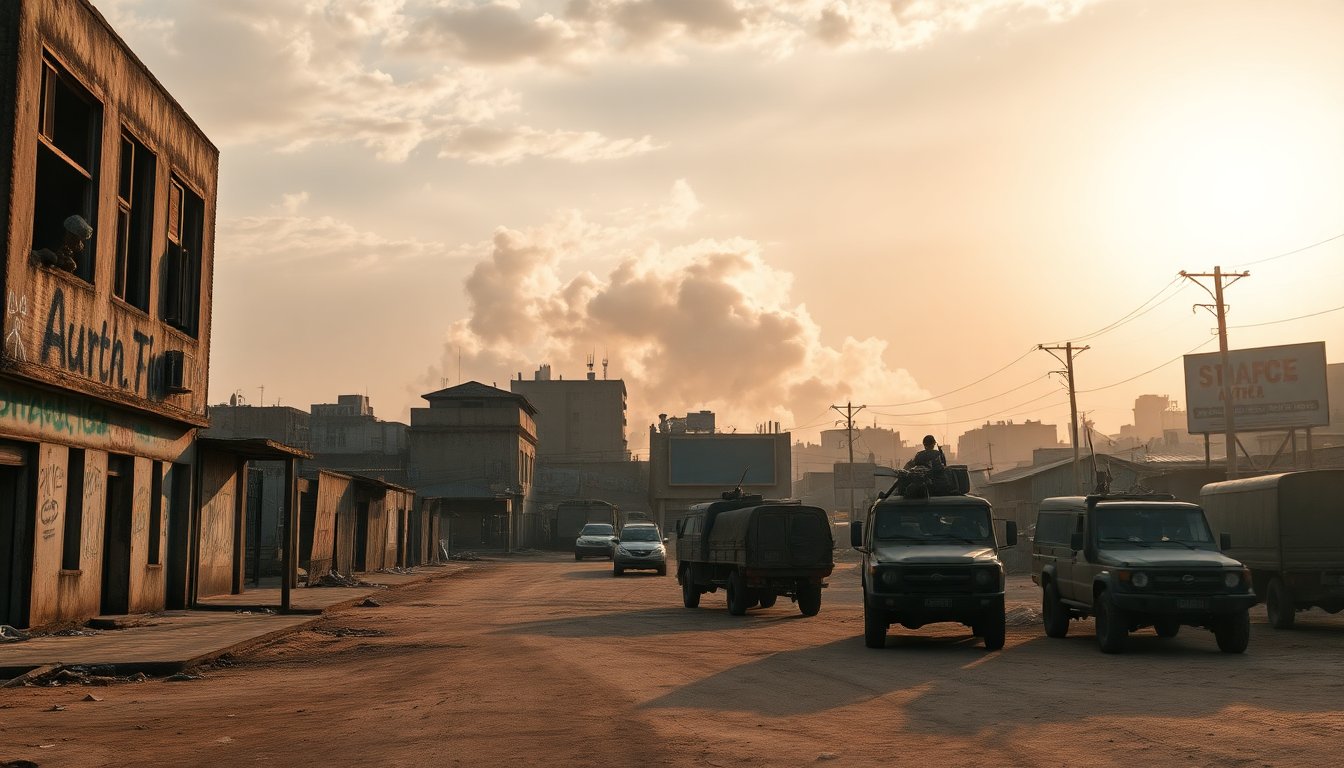Table of Contents
The political landscape surrounding President Trump’s administration has shifted significantly with his recent remarks regarding Nigeria. Trump indicated a possible military intervention in the country, stating he might go in ‘guns-a-blazing.’ This statement has raised concerns not only among the public but also among U.S. military officials stationed in Africa.
Military leaders are increasingly worried about the situation in Nigeria, particularly amid ongoing reports of violence targeting the Christian community. Although Trump’s comments seem aimed at addressing these humanitarian issues, the implications of a military response could be profound.
The backdrop of Trump’s statement
Trump’s comments emerge against a backdrop of allegations regarding Christian persecution in Nigeria. Local journalists report a climate of fear, with many Christians feeling threatened by extremist groups. Despite these claims gaining traction, the Nigerian government has firmly denied any widespread persecution of Christians.
This denial raises questions about the accuracy of information from the region. Trump’s administration has emphasized the plight of Christians, framing it as a situation that requires urgent action. However, the interpretations of events and the validity of claims from various sources are still subjects of debate.
Military officials express their concerns
U.S. military officials in Africa have expressed their concerns regarding the potential consequences of Trump’s threat. Many fear that a military escalation could occur if the president chooses to act on his words. The military’s primary focus has been on countering terrorism and stabilizing the region, rather than engaging in a full-scale military operation.
Additionally, the prospect of military action presents logistical challenges. Any intervention would demand substantial resources and meticulous planning to avoid worsening an already complex situation. Military leaders recognize the delicate balance needed to maintain relationships with local governments and communities.
The political ramifications of military action
Trump’s suggestion of military action in Nigeria is not just a foreign policy issue; it carries significant domestic political ramifications. The president’s approach often leans towards aggressive rhetoric, which may resonate with his base but could alienate moderate voters.
Moreover, the idea of deploying troops to Nigeria might provoke backlash from various political factions within the U.S. There are ongoing discussions about the use of military force abroad, especially concerning the protection of human rights versus national interests.
Public reaction and media coverage
The media has rapidly responded to Trump’s comments, with numerous outlets analyzing the potential outcomes of military intervention. Political commentators point out the risks associated with a hasty decision that may lack a comprehensive understanding of the on-ground situation. Critics argue that such a move could lead to further destabilization in Nigeria and possibly entangle the U.S. in a prolonged conflict.
Conversely, supporters of Trump’s position argue that a strong stance against violence is crucial. They contend that the international community must react decisively to humanitarian crises, suggesting that military action could be a last resort to safeguard vulnerable populations.
Military leaders are increasingly worried about the situation in Nigeria, particularly amid ongoing reports of violence targeting the Christian community. Although Trump’s comments seem aimed at addressing these humanitarian issues, the implications of a military response could be profound.0


